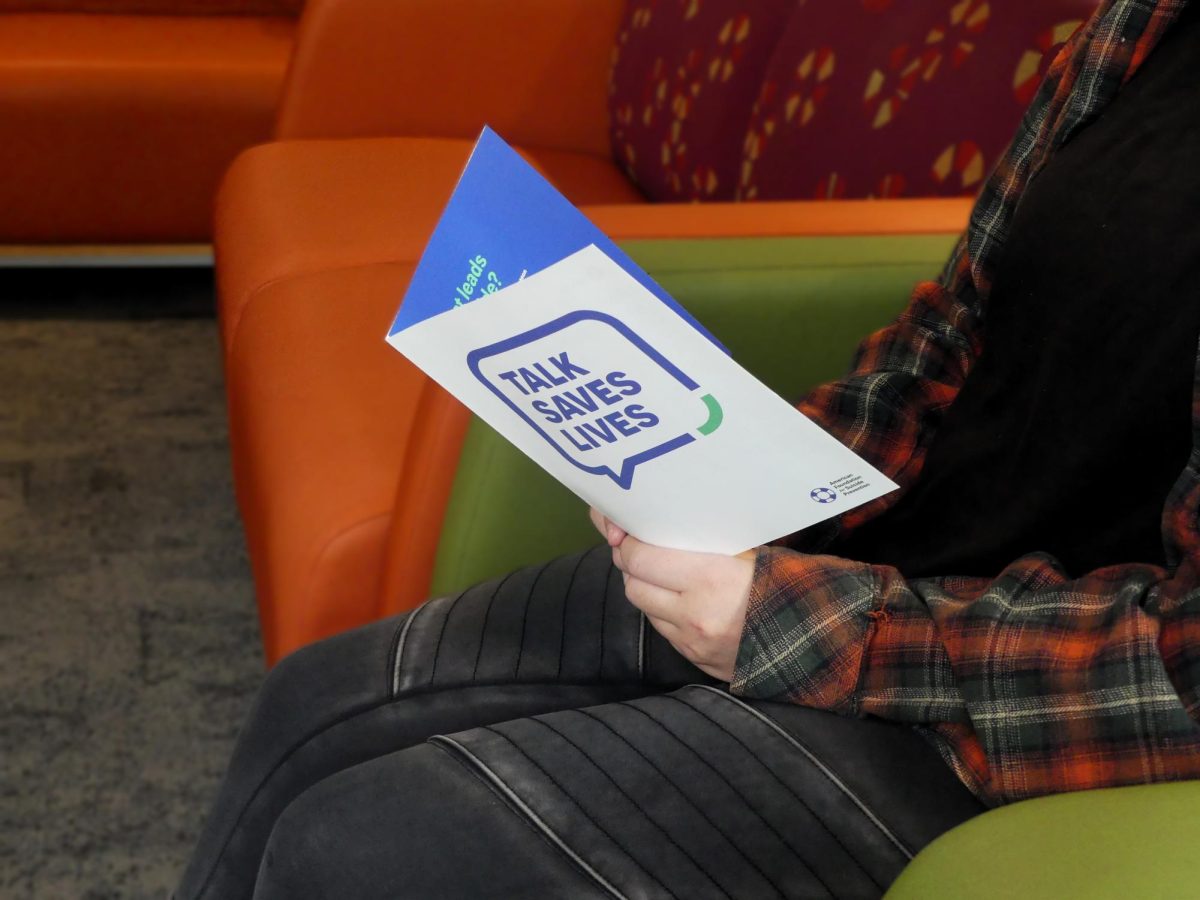This summer, five students in a public health practicum at Central Oregon Community College, researched and created a suicide prevention plan for the college. The plan was drafted and given to COCC to decide what to do next.
The plan consists of three different levels: prevention, intervention and postvention. Prevention would consist of the upfront, awareness piece – reducing factors that increase risk and making sure the resources are available for faculty and staff if they require it. Having peer support specialists on hand and learning prevention training such as QPR, Question Persuade and Refer.
The Intervention level would directly help students find resources they need during an immediate crisis, including ASIST, an Applied Suicide Intervention Skills Training.
Postvention is learning how to support and navigate a situation that has been death by suicide.
Faculty, staff and students would need to be trained on how to deal with each level with the appropriate resources.
The students behind the prevention plan were able to look at Oregon State University’s, University of Oregon’s, Bend-La Pine School District’s plan and other local district schools aimed to help guide the development of the plan.
Deschutes County Mental Health Services also played a part in helping the students understand what was needed to create an effective plan.
In 2021, 889 people died by suicide in Oregon according to the Centers for Disease Control and Prevention.
“I lost a family member to suicide about 10 years ago, which influenced me to become an advocate for mental health support,” said Jessica Scott, a public health student and community health student lead for the mental health wellness team.
Scott said that not all states have legislation requiring school districts to adopt a policy in developing a suicide prevention plan, but Oregon does; Senate Bill 52, also known as the Adi’s Act.
The students behind the prevention plan also conducted interviews with COCC staff, faculty and some students to gauge awareness, assess needs and develop ideas together on what COCC could provide for the community.
“For some reason, community colleges are not mandated to have a suicide prevention plan, but K-12 does,” said Sarah Baron, the Public Health Science Assistant Professor for Health and Human Performance.
Baron noted how colleges in Oregon like OSU and UO have suicide prevention plans, and it’s long overdue for COCC to have one.
“One of the things that I have seen at COCC is that it’s hard to define where this lives. Who actually should be the owner of this program? When we have a situation, who will spearhead that and take that on?” said Cory Darling, Director of Safety and Emergency Management at COCC.
Darling noted that COCC is still in the process of figuring that out.
“I know firsthand the importance of creating a plan so that we can be better informed, it’s part of the driving force that led me to support our veterans,” said Bonnie Jordan, Veteran Program Coordinator at COCC.
“I hope we can have a concise student veteran prevention, intervention and postvention plan. And that we as a college collectively know and understand and do regular training so that we can feel informed to best support our students,” Jordan added.
According to the National Institute of Health, acknowledging and talking about suicide may reduce, rather than increase suicidal ideation, and may lead to improvements in mental health in treatment-seeking populations.
“As a college student myself and the mother of two daughters who are also in college, I know that the need to talk about mental health is indisputable,” said Amber Buhnmann, a public health student and contributor to the prevention plan.
“Mental health and suicide tend to be uncomfortable areas for many to talk about, but staff, students, and faculty all need to get comfortable with being uncomfortable,” said Buhnmann.










